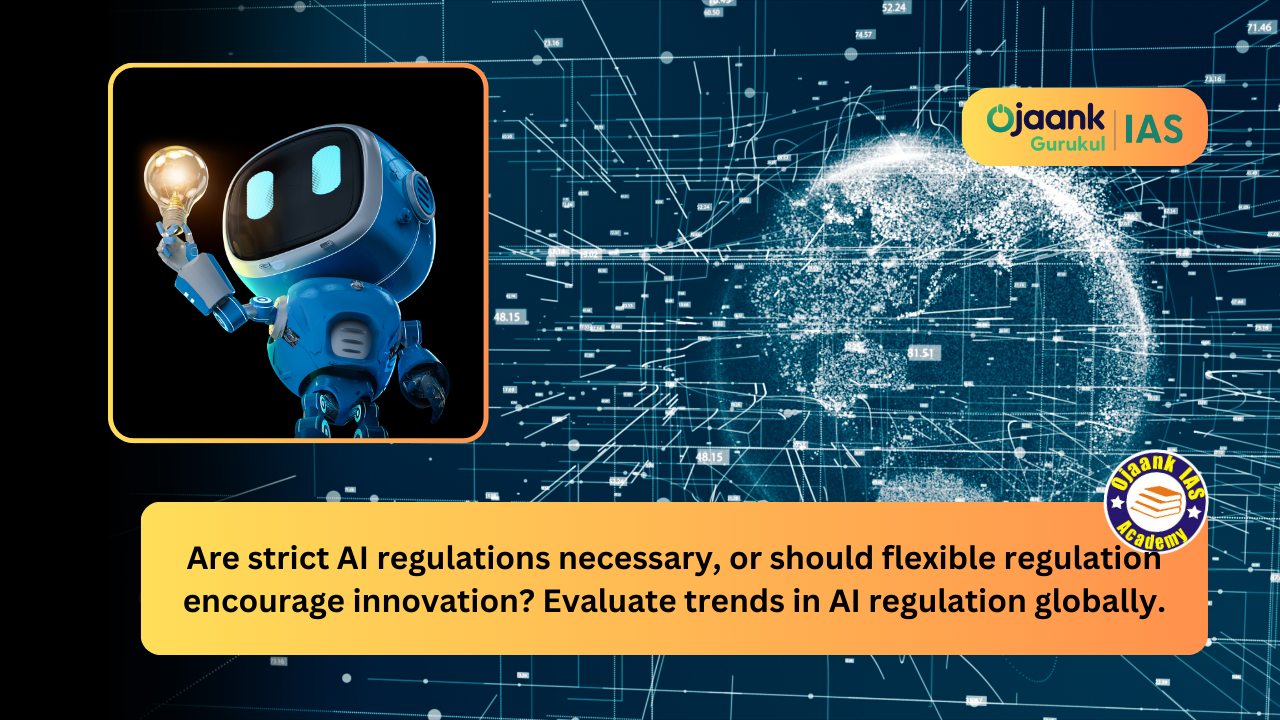2/14/2025
Are strict AI regulations necessary, or should flexible regulation encourage innovation? Evaluate trends in AI regulation globally.

Why is AI Regulation Necessary?
1. Ethics and Transparency
- Transparency is essential to prevent bias and discrimination in AI decisions.
- Algorithms should be accountable and publicly verifiable. Read more about Ethical AI
2. Security and Privacy
- Strong laws are needed to prevent AI-based cyberattacks and data breaches.
- Strengthening GDPR and other international laws to protect personal data. Learn about AI and Cybersecurity
3. Impact on Jobs and Economy
- Labor market policies should be updated considering job displacement due to automation.
- Reskilling programs should be implemented as per the changing industrial landscape. The Role of AI in Job Market
Strict Regulations vs. Flexible Regulations
1. Benefits of Strict AI Regulations
- Prevents unfair and misleading AI usage.
- Reduces cybercrimes and data privacy violations.
- Enhances public trust in AI systems.
2. Benefits of Flexible AI Regulations
- Provides startups and research institutions with freedom to innovate.
- Encourages the rapid growth of AI technologies.
- Helps companies remain competitive in the global AI landscape. AI Innovation vs. Regulation
Global Trends in AI Regulation
1. European Union (EU)
- AI Act enforces strict rules on high-risk AI applications.
- Focus on increasing transparency and accountability.
2. United States
- Adopted a flexible regulatory approach to encourage innovation.
- Increased focus on AI security and transparency. US AI Governance
3. China
- Extremely strict AI regulations with strong government control.
- AI companies must comply with government guidelines.
4. India
- Aiming to balance transparency with innovation.
- Promoting global cooperation in AI governance.
Conclusion
- Strict regulations ensure security and ethics, while flexible regulations promote innovation.
- A hybrid model with security measures and innovation-friendly policies is the ideal solution.
- A globally coordinated AI policy is necessary to prevent regulatory misuse and ensure equal benefits for all nations.
Frequently Asked Questions (FAQ)
1. Why do we need AI regulations?
AI regulations ensure fairness, prevent bias, and enhance data security while promoting ethical AI use.
2. How do strict AI laws benefit society?
Strict laws prevent data breaches, cyber threats, and unethical AI use, ensuring user safety.
3. What are the risks of over-regulating AI?
Over-regulation can slow down innovation, restrict startups, and reduce competitiveness in the global AI market.
4. How can AI policies balance security and innovation?
A hybrid model combining strong security measures with flexibility for innovation is the best approach.
5. How does India regulate AI?
India follows a balanced strategy, promoting both AI transparency and innovation, while participating in global AI governance.